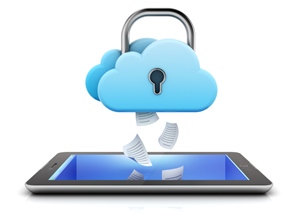Newsletter #155 Your Personal Cloud
Soon you won't refer to data as being on 'my PC' or 'my Mac'.
Gartner Group says that by 2014 the 'personal cloud' will have replaced the PC as the centre of our digital lives. It will mean that our files, music, video and all information will be in the cloud, not on a machine under the desk. We will access this store of information via a variety of devices - mobile, tablet, laptop or desktop machine.
So what how will we refer to the process of getting that information? We won't, it will just be there on whatever device we have at hand.
Analysts IHS are predicting there may be a half-billion personal cloud storage subscriptions by the end of this year with double digit growth increases expected for another half decade.
So what's driving this fundamental shift in computing?
- Apple's iPad has driven the consumerisation of many Cloud services (see 2. below) making it possible, and sexy(!), to easily access data from anywhere.
- The consumer and business services introduced like Dropbox, Apple's iCloud, Evernote, Gmail and Flickr all have similar business models. There is a free version that provides some storage and basic features that can be scaled up as required. There's no risk in trying a service.
- The costs are low. Consider Dropbox - you can store 100GB of data in the cloud for US$9.99 per month.
- Application-specific Apps. Many of the top consumer cloud services have different Apps for your iPhone, iPad or Android versions meaning that the Apps themselves are tailored for the environment they are used in. For example, there are more features on an Android tablet App than there would be on an iPhone App.
- Personal cloud applications are becoming integrated into all consumer and business software. Want to save that file? You can save it to iCloud, Dropbox or Google Drive at the click of a button.
The ramifications of this groundshift are many:
- Computer hardware will not be as important unless you are a gamer or require the processing power for things like video or graphical editing. The importance of the fixed desktop computer will continue to wane
- It will further escalate the adoption of 'virtual offices' for knowledge based services. If your employees/contractors are connected to the cloud do they need a fixed desk? Further if they only need a tablet and a smartphone and are paperless (see below), they barely need an office desk, just a quiet place to work. The distinction between work and private time will blur further
- Finally the paperless office. When you can scan so easily from your smartphone then save to the cloud, why do you need a paper copy? Offices of the future will shrink in physical size as paper collection takes much of the space
- Once you have your data in the cloud, including your personal and business information, the next step may well be to grant access to the various people and organisations you deal with on a regular basis. For example if you change psychologists (just kidding), you will just provide him/her with your personal token that has your contact details stored. No form filling required.
- Your Internet connection becomes more important than your power connection. The cloud is only useful if you can access it from everywhere so you should have an alternative connection as backup if your Internet connection goes down.
Sheer convenience and freedom from being tethered to a desk (ask any iPad owner) will continue to drive the takeup of the personal cloud. There are security concerns, but the reality is that your data is generally safer in the cloud than under your desk.![]()